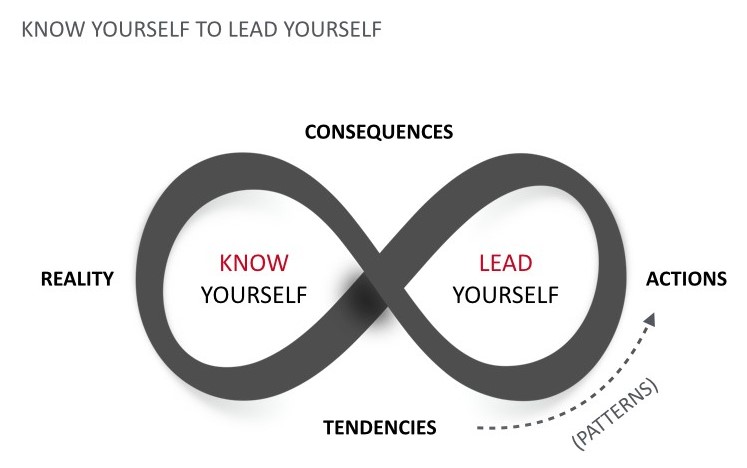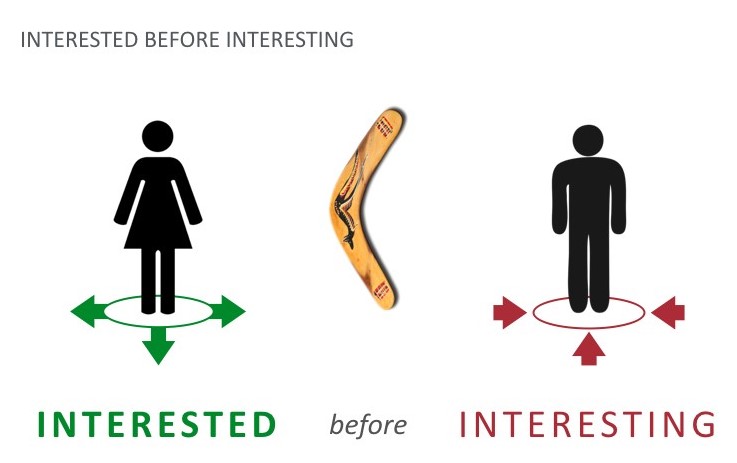By Rick Shallenberger, GCI-USA Regional Pastor
This is number 7 in Rick's series on leadership. For other articles in the series, click a number: 1, 2, 3, 4, 5, 6, 8.

One of the most effective ways to influence others is to listen to them. This may seem a bit strange, but let’s be honest—pastors have a tendency to be the center of conversations. We often feel we need to provide the answer, take the lead, or offer counsel in a conversation. The truth is, many times people simply want to be heard, and we can make our greatest impact and influence by simply listening. Listening is an important key to building relationship, and doing so helps avoid misunderstandings and causing offense.
While some have difficulty listening; others appear to listen but then quickly take over the conversation. Have you noticed that some people have an uncanny “ability” to turn the conversation back to themselves? When you share a story, they respond by sharing a similar one about themselves. This is called autobiographical listening, and it is fairly common—especially among extroverts. Most don’t even realize they are doing this. I was made aware of this during a year-long leadership class I participated in with the other regional pastors and CAD Director Greg Williams.
We began the class by determining our personality types. I am an ENFP— extrovert, intuitive, feeler, perceiver. While going through the differences between extroverts and introverts, the concept of autobiographical listening came up as a negative tendency of extroverts. I immediately recognized this tendency in myself. Referring back to the tool Know Yourself to Lead Yourself (see diagram below) it became clear that my tendency to use autobiographical listening had consequences, giving people an image of me that was not helpful.

Let me illustrate this point a bit more clearly: You are telling me a story of how you broke your leg and it impacted your role in a team sport. While you are telling me that story, I’m thinking of the time I broke my leg. Thinking I will show I can relate to what you went through, I share that I broke my leg in four places, was in a cast for more than three months, and basically had to learn to walk again.
Rather than showing I can relate to your experience, my story has minimized it. I’ve put the attention on my more serious break and lengthy recovery. This self-autobiographical listening (the action) has the opposite effect I was hoping for. Putting the attention on myself gives you the impression that I’m not really interested in what you went through. You now believe I’m not all that interested in you, and that will affect how you treat me and what you share with me in the future. You might even get offended because I come across as more interested in myself than in you.
Because you are now unwilling to share things with me—or even talk with me—my reality changes. I determine that for some reason you don’t like me, and I don’t know why. I might conclude it’s because I’m not being transparent, and so I share more stories, hoping to draw you into conversation. As a result, things just get worse.
This situation is addressed by GCI’s leadership consultant, GiANT Worldwide, in a tool called “Interested Before Interesting” (see the diagram below). It reminds us to listen deeply—showing interest in what others are saying without any motive or other intent. Doing so is key for pastors and ministry leaders as our congregations grow and new people start attending our events and worship services. The greatest impact you can make on new people is by listening to them and their story for the sole purpose of giving them value. When we don’t listen, we come across as not interested.

Notice the boomerang in the diagram, which indicates that when we think we must take the lead, give an answer, or provide counsel, it’s often perceived that we are not interested. Further, if we practice autobiographical listening, we are perceived as someone who does not care.
After having autobiographical listening brought to my attention, I was surprised to see how often I thought I was showing interest, but all I was doing was putting the attention on myself. I set a goal to stop, challenging myself to go an entire month without sharing stories about myself unless I was specifically asked. What struck me during that month was how many pastors practice autobiographical listening. Further, I became more aware how many pastors and ministry leaders took the lead in conversations, or resorted to giving advice or answers. I watched people’s reaction during that month and realized the need to address this leadership topic.
May I bring you a challenge? During the month of February, pay attention to conversations you have at church and elsewhere. Notice how often you start to give unsolicited advice, or answers to questions that haven’t been raised, then stop yourself. When you are listening to a story and it reminds you of a personal experience, keep it to yourself. Spend the month listening to others. Be interested and show that you are by listening. The result will be a better and more interesting leader.



Thanks Rick for this helpful article. In my work as a full time hospice chaplain what you wrote is so true. In the world of chaplaincy we call it “parallel processing”. You are listening to someone pour out his heart and you want to so much “identify” with this person, as you said, that you start telling them about a similar or even worse situation that you have personally experienced or are aware of. The temptation to want tell your own story becomes very strong at this point. I have found that usually the person will not hear what was said or just “clam up.” At this point, any hope of helping this person has been diminished and whatever connection you may have established up until now has been damaged or broken. It’s very true, most people want to know that they have been heard.
Don Engle, retired GCI pastor.
Rick, This is something I noticed in myself some time ago. I first noticed that someone else did this frequently- and they entirely took over the conversation- and thought how irritating it was, but then realized that I was doing the same thing. I thought, as well, that I was showing others that I was listening and could sympathize with them. Question: Is it okay to just mention that I had a similar experience (without going into detail, such as, “I broke my leg as a kid, so I feel for you!”) and then proceed to ask them more questions about what happened?
Hi Rick,
Thanks very helpful material.
Do you remember John Halford in Homiletics class in Pasadena saying something similar about speaking/preaching. It was something along the lines of;
If you want to be a convicting speaker, be convicted,
If you want to be a motivating speaker, be motivated,
If you want to be an inspiring speaker, be inspired
If you want to be an interesting speaker, be interested..
In other words be authentic, not just putting on an outward show.
It has always stuck with me,
Regards,
Phil Hopwood
Hey Rick,
Very fine job. I see myself in your very good article .. And boy I find it very hard to change . You made me much more aware of the problem which is very good . I will try to stifle myself in that area .. I’m up for your challenge. Keep up your very good work .. Warmest regards to you and yours .. Roger L
Hey Rick; I’ve never before read anything about you ‘ so therefor, all I can say is this, you sound like JESUS. Ernie.
Valerie, you ask a good question. Most of us have similar experiences, but similar is never the same. I’ve faced lots of tragedies in my life so I understand tragedy, but that doesn’t mean I can understand your tragedy or the feelings you are going through. So I would suggest even bringing up that you had a similar experience can come across as autobiographical. The person may feel you are minimizing their experience. It can come across as, “It’s not that big a deal, I went through a similar thing and I’m fine now.” The point is to give the other person 100 percent of the attention. This is what builds relationship. Once a relationship is built the person will start to ask you questions as well. Because you were interested, you can then be interesting. Then imagine their surprise to find you also broke your leg. It reinforces that your interest was on them, not on yourself. That’s when trust is built.
Thank you, Rick. It’s a valued piece of advice. Just can’t wait to put it into practice.
Having now read “You Just Don’t Understand,” by Deborah Tannen, PH.D., I have to update my thoughts on this topic. While I agree with some of what you say in this article, I think it is based on a male paradigm of what a ‘good listener’ is. The book I read for Dr. Morrison’s class on men and women in ministry focuses on the different ways that men and women have conversations. Women often interject their experiences in order to negotiate for closeness, support, and consensus in conversations. (I’m speaking in generalities, of course. Women, in general, are more concerned with relationships -they use ‘rapport talk’ – and men, in general, are more concerned with status- they use ‘report talk.’)* Knowing these things helps one to adjust. If I am in a group of women (or people who know one another very well), I find that interjections are not considered interruptions. If I am in a group of men, they will think I am interrupting, even if I’m saying, “You’re so right!” Women show that they are giving their attention by giving support verbally throughout a conversation, but men don’t. You said, “The person may feel you are minimizing their experience,” which, according to Dr. Tannen, is a man’s reaction, because it shows that status is being threatened. I would suggest that the person may feel that you empathize with them (especially if it’s a woman), but it’s key to follow up with questions to draw out their story.
So I think it’s important to take one another on our own terms and not apply our standards to everyone else. I definitely agree that one shouldn’t take over the conversation. I agree that if it’s a serious discussion where emotions are high, it’s best to listen. But sharing commonalities is how most women communicate; it’s not a discussion if only one person is talking. I would say that keeping my eye on the other person and watching for non-verbal cues is very important – by doing that I can tell if they are feeling understood or interrupted. (Which is why texting and talking on the phone ends in more misunderstandings than talking face to face!)
Some people say that women need to be more like men and some say men need to be more like women; the truth is that we all need to be more like Jesus!
*I’m not trying to put down men’s way of talking; these are just the findings of Dr. Tannen. I’m not trying to make a value statement of who is ‘right’ or ‘wrong,’ only that men and women are different… in case you hadn’t noticed. 🙂